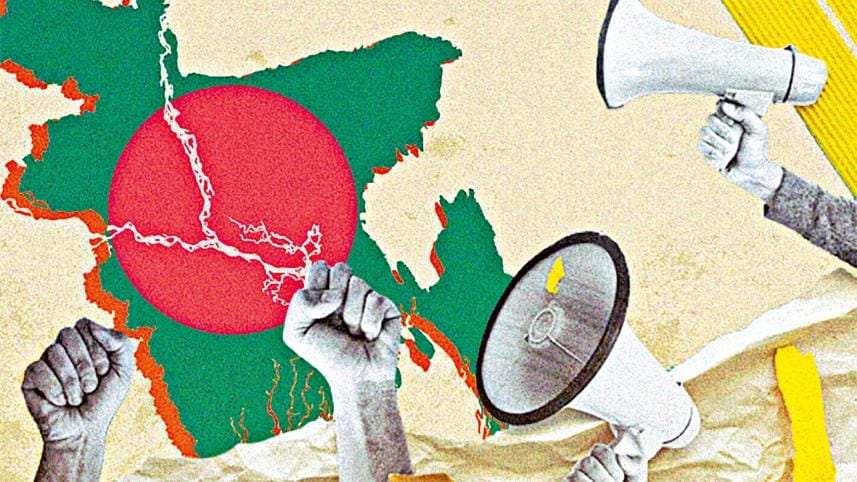The State and its Human Rights obligations

My understanding of the term 'Human Rights' is that they are inalienable birthrights of a human wherever he/she is born in the world and that the state is obligated to ensure, protect, and respect such rights. Human rights include, amongst others, rights to life, liberty and dignity of any individual. Sometimes, we get confused about the literal meaning and distinction between "human rights" and "fundamental rights", although they have similar import. In fact, the idea of basic human rights coined in the universal declaration of human rights declared back in 1948 by the UN, subsequently percolated into the domestic legal systems as fundamental rights or as the bill of rights enshrined in specific Constitutions. In part III of our Constitution our fundamental rights have been enshrined and Article 44 endowed on citizens the right to enforce such rights through taking recourse to Article 102 of our Constitution.
Despite the solemn assertions of rights and entitlements in the Constitution, we have all been privy to the terms "extra-judicial killings" and "enforced disappearance". Needless to mention, these diabolical offences are wanton violation of human rights. While the harrowing accounts of extra judicial killings and enforced disappearance have been a reality for decades but barely have we seen any visible actions regarding meting out exemplary punishment to those who are behind such heinous crimes. In this particular field, different human rights organisations have been found vociferous all along for the brutality unleashed to the defenseless citizens especially by different law-enforcing agencies but they eventually could not be successful in bringing the accountable to book and ensuring justice to the victims. However, our right defenders' deliberate engagement bloster collective anger against the state which in turn bring attention to the international community.
The state is obligated to ensure rule of law and as a member of the judiciary a solemn responsibility rests on all of us to dispense justice impartially and in a free and fair manner which we are all pledge-bound to do as the repository of public trust.
A country is considered civilised when the rule of law prevails therein, lest anarchy and lawlessness grips the country and oppression of the downtrodden becomes the order of the day. Further, the state is obligated to ensure rule of law and as a member of the judiciary a solemn responsibility rests on all of us to dispense justice impartially and in a free and fair manner which we are all pledge-bound to do as the repository of public trust.
At the same time, we have to bear in mind that, judiciary is not beyond reproach and we are also under constant public gaze; therefore we should remain vigilant and cautious while adjudicating any legal proceedings placed before us.
Now, I revert to the legal protection ensured by the state in case of violation of human rights in our country. We have a statute titled "The National Human Rights Commission Act 2009" having as many as thirty-two sections therein. In section 12 of the Act, the functions of the commission have been delineated which is merely investigative in nature and then to hand in its suggestion and recommendation to the government to preserve and protect human rights and to sensitise the people over that. From the nature and function entrusted upon the commission, it appears to me, that the said commission is nothing but a toothless tiger having no authority to compel the violators to face the music. Indeed, such inherent limitations stave-off the commission from doing anything substantive against serious human rights violations. Then again, ever since the said statute came into being, we found that individuals who were at helm of the commission, were mostly retired bureaucrats or those whose political ideology aligned with that of the party in power as if it were but a rehabilitation center for them. It has barely been given any authority to investigate any wrongdoing against the law enforcing agencies or top government high-ups. Now, time has come to bring changes in the Act for making it fully functional as an effective human rights defender for the oppressed section of people.
The writer is judge, High Court Division, Supreme Court of Bangladesh.



 For all latest news, follow The Daily Star's Google News channel.
For all latest news, follow The Daily Star's Google News channel.
Comments